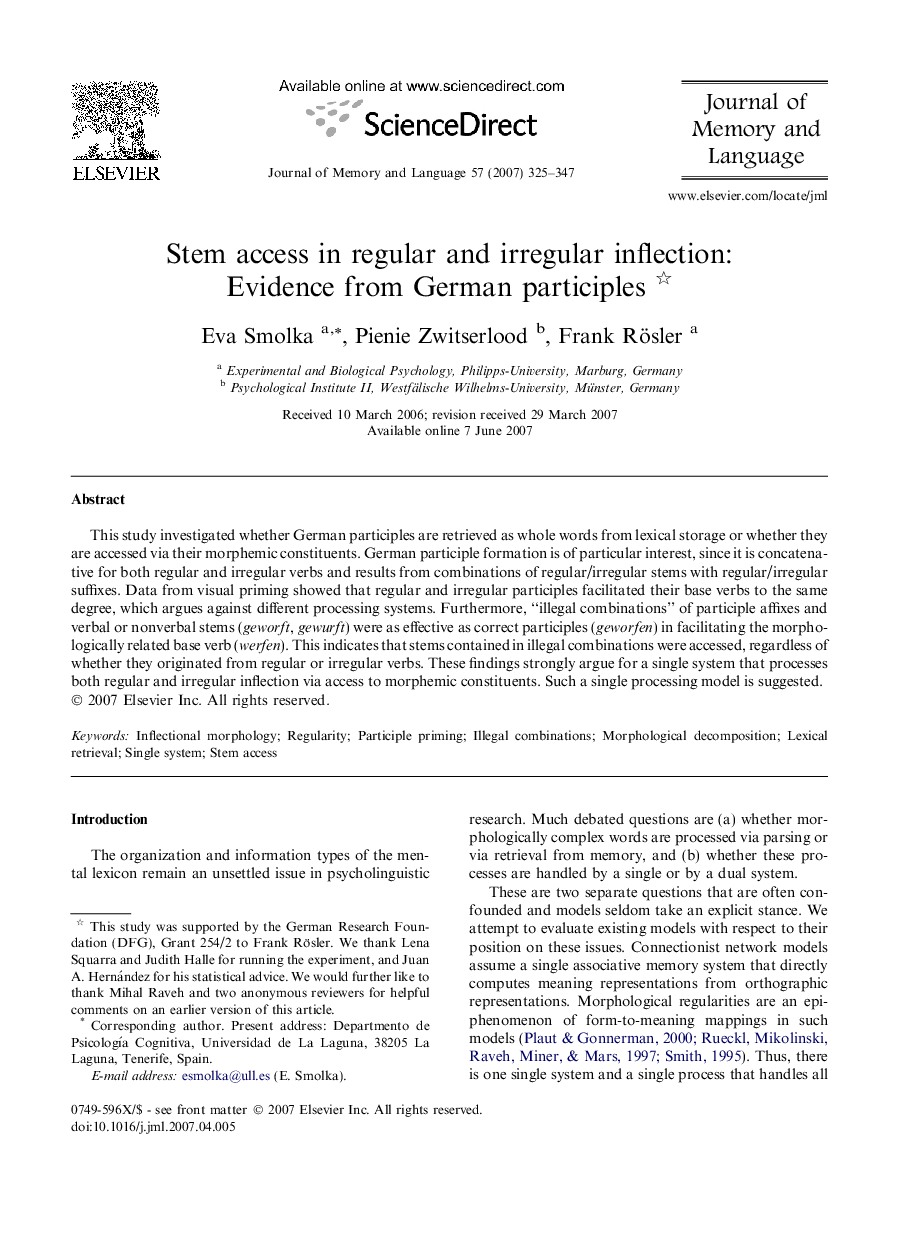| Article ID | Journal | Published Year | Pages | File Type |
|---|---|---|---|---|
| 932242 | Journal of Memory and Language | 2007 | 23 Pages |
This study investigated whether German participles are retrieved as whole words from lexical storage or whether they are accessed via their morphemic constituents. German participle formation is of particular interest, since it is concatenative for both regular and irregular verbs and results from combinations of regular/irregular stems with regular/irregular suffixes. Data from visual priming showed that regular and irregular participles facilitated their base verbs to the same degree, which argues against different processing systems. Furthermore, “illegal combinations” of participle affixes and verbal or nonverbal stems (geworft, gewurft) were as effective as correct participles (geworfen) in facilitating the morphologically related base verb (werfen). This indicates that stems contained in illegal combinations were accessed, regardless of whether they originated from regular or irregular verbs. These findings strongly argue for a single system that processes both regular and irregular inflection via access to morphemic constituents. Such a single processing model is suggested.
